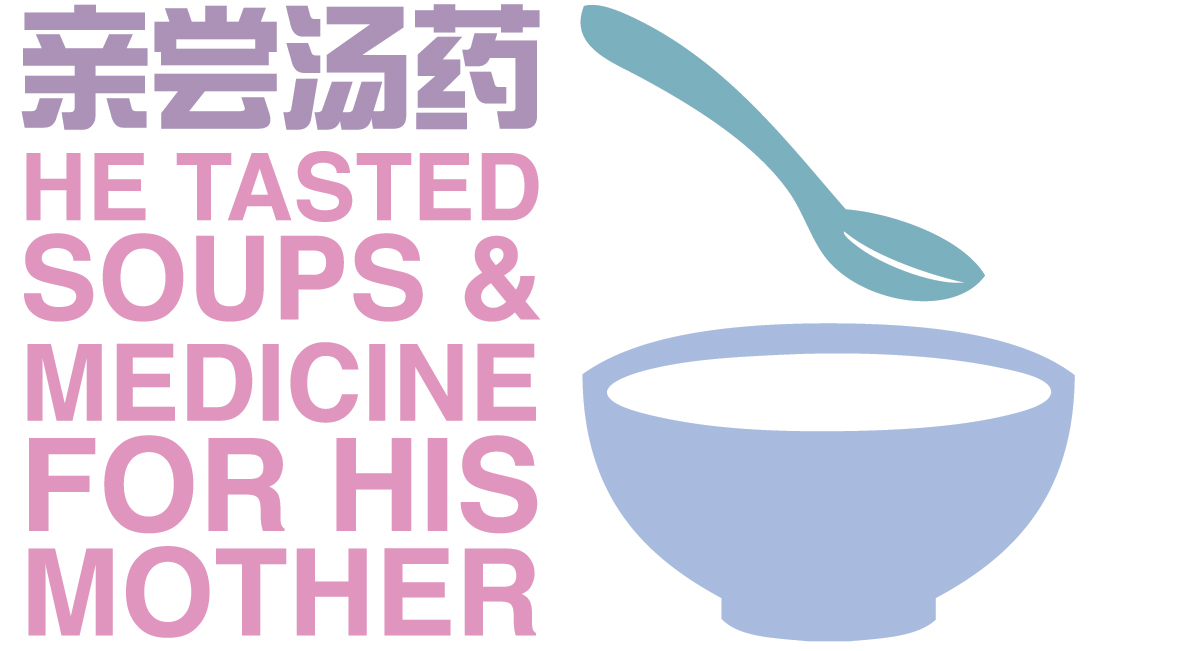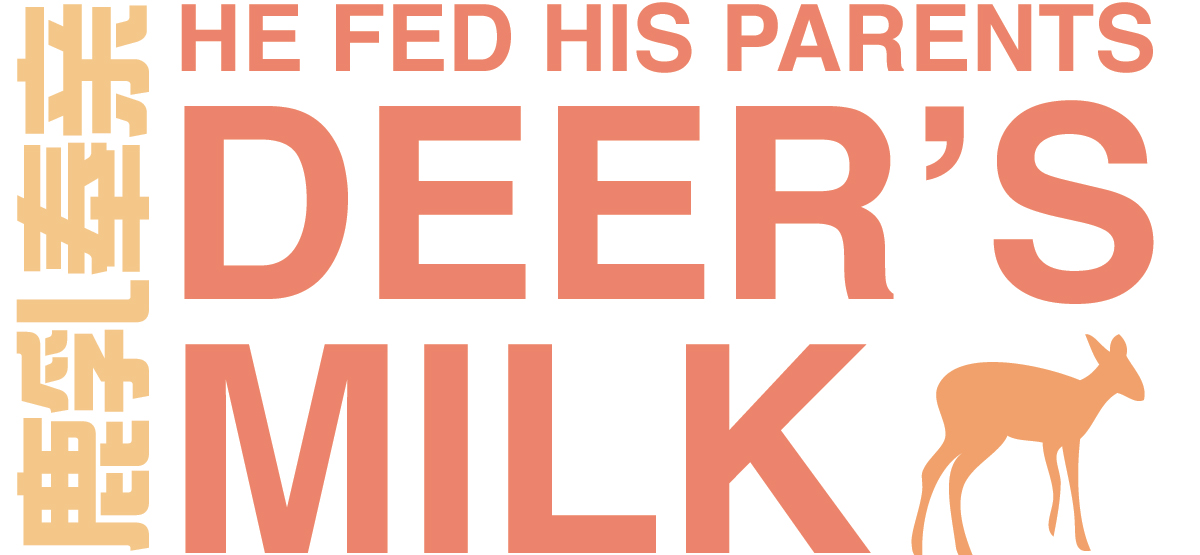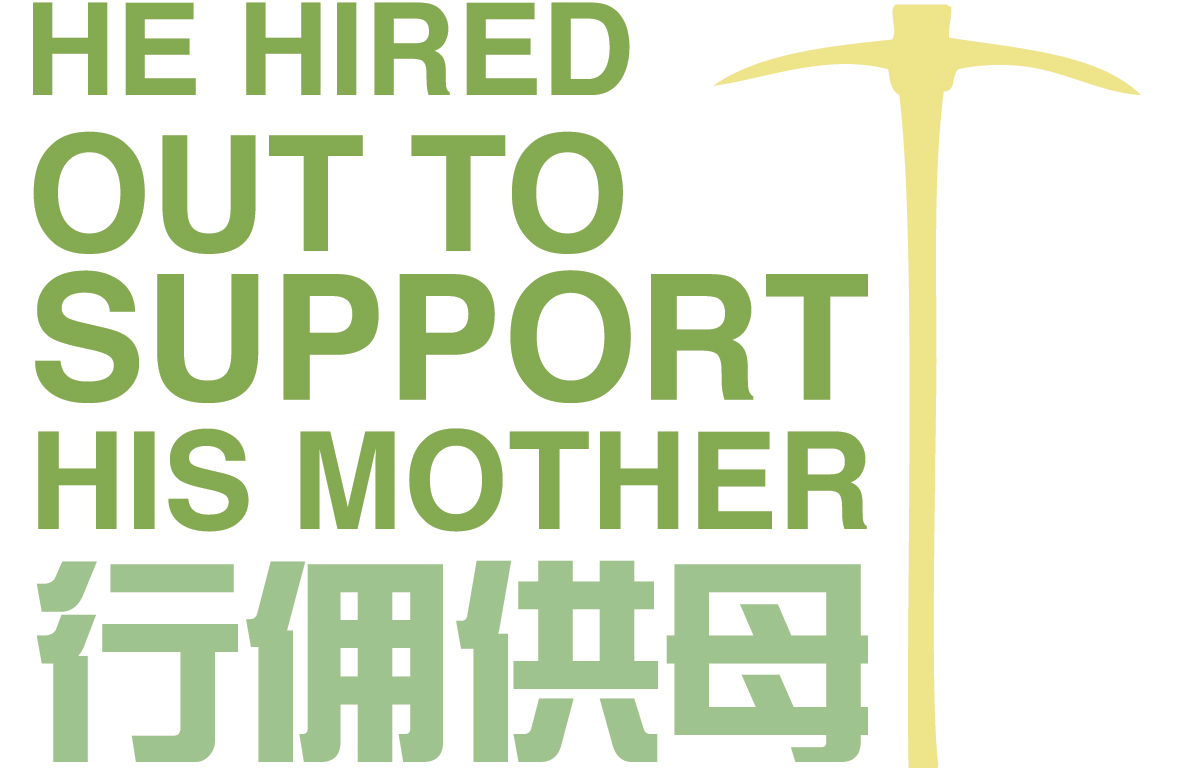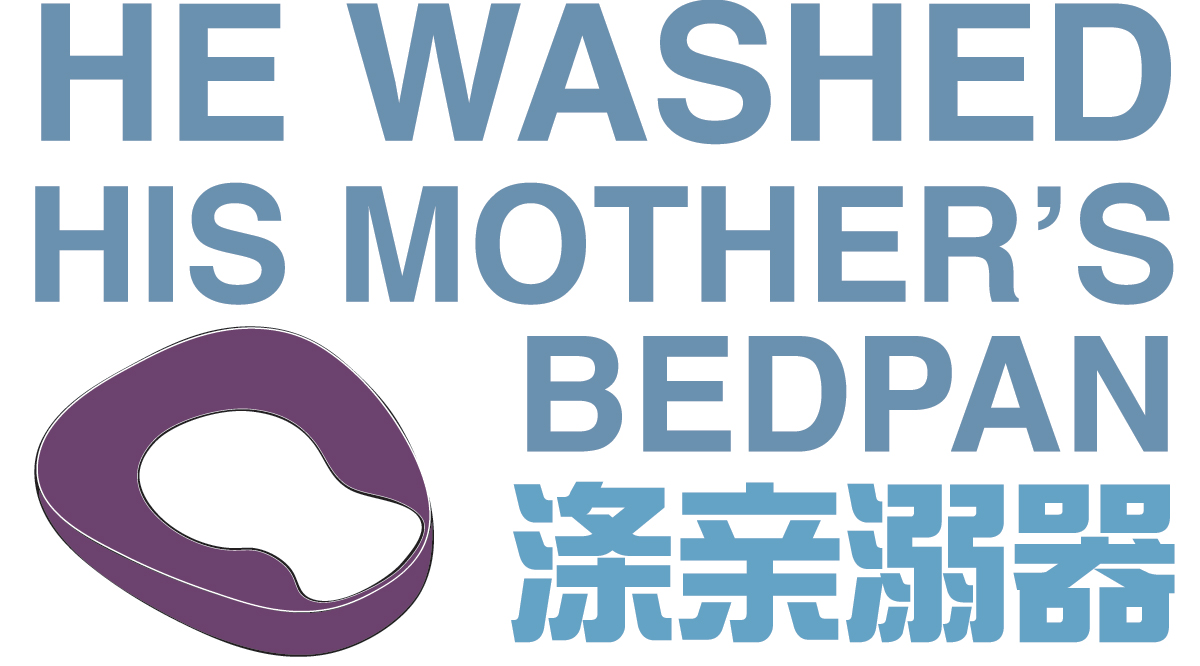 Emperor Wén of the western Hàn was named Héng. He was the third son of Liú Bāng, the founder of the dynasty. Before he became emperor, he was appointed King of Dài in Shānxī province. His mother became Queen-Mother Bó Jī. The emperor-to-be respectfully tended her and was not idle. His mother was sick for three years. The emperor did not sleep or even unfastened the belt of his clothes. If he had not tasted a medicine, it was not brought to his mother. His benevolence and piety were legendary throughout the kingdom. Verses praised him saying:
Emperor Wén of the western Hàn was named Héng. He was the third son of Liú Bāng, the founder of the dynasty. Before he became emperor, he was appointed King of Dài in Shānxī province. His mother became Queen-Mother Bó Jī. The emperor-to-be respectfully tended her and was not idle. His mother was sick for three years. The emperor did not sleep or even unfastened the belt of his clothes. If he had not tasted a medicine, it was not brought to his mother. His benevolence and piety were legendary throughout the kingdom. Verses praised him saying:
Benevolence and piety are legendary through the kingdom; lofty and eminent, he excels a hundred kings; the Queen-Mother has been sick for three years, and he always tastes the medicine first.
 In the Zhōu dynasty lived a man named Tán, who was very filial. His parents were old, and both suffered from a malady of the eyes. It was believed that if they drank deer’s milk, they would get better. Tán therefore disguised himself in a deerskin and went to a herd of deer, deep in the mountains, to obtain deer’s milk to give his parents. Some hunters saw him and were about to shoot him. Just as they were about to do so, Tán revealed himself to them to avoid being shot. There is a poem which praises him, saying:
In the Zhōu dynasty lived a man named Tán, who was very filial. His parents were old, and both suffered from a malady of the eyes. It was believed that if they drank deer’s milk, they would get better. Tán therefore disguised himself in a deerskin and went to a herd of deer, deep in the mountains, to obtain deer’s milk to give his parents. Some hunters saw him and were about to shoot him. Just as they were about to do so, Tán revealed himself to them to avoid being shot. There is a poem which praises him, saying:
His elderly parents wanted deer’s milk, so he wore a coarse fur garment; if he had not spoken out loud, he would have borne back arrows.
 Jiāng Gé lived in the later Hàn dynasty. His father died when he was young and he lived alone with his mother. The times were troubled and chaotic and so, carrying his mother on his back, he fled. Again and again, they encountered bandits who wanted to force him to join them. On one such occasion, Gé burst into tears, and told them that he bore his mother with him and he had to support her. The bandits could not bring themselves to kill him, and at length, he reached Xià Péi, in Jiāngsū province. Impoverished and barefoot, he hired himself out as a laborer to support his mother. His mother was able to have all she desired, and there was no end to what he gave her. A verse praises him thus:
Jiāng Gé lived in the later Hàn dynasty. His father died when he was young and he lived alone with his mother. The times were troubled and chaotic and so, carrying his mother on his back, he fled. Again and again, they encountered bandits who wanted to force him to join them. On one such occasion, Gé burst into tears, and told them that he bore his mother with him and he had to support her. The bandits could not bring themselves to kill him, and at length, he reached Xià Péi, in Jiāngsū province. Impoverished and barefoot, he hired himself out as a laborer to support his mother. His mother was able to have all she desired, and there was no end to what he gave her. A verse praises him thus:
He carries his mother out of danger; when destitute brigands assault him many times, he tells them his grief and is able to avoid them; by his labors he supports his mother.
 Huáng Tíngjiān of the Sòng dynasty was also called Shāngŭ. During the Yuányòu period [1086-1093] he was a government scribe. His nature was filial and although he was very prominent, he served his mother with deep sincerity. Every evening, he himself washed out his mother’s bedpan. A moment did not pass in which he did not display the responsibility of a son. A verse praises him saying:
Huáng Tíngjiān of the Sòng dynasty was also called Shāngŭ. During the Yuányòu period [1086-1093] he was a government scribe. His nature was filial and although he was very prominent, he served his mother with deep sincerity. Every evening, he himself washed out his mother’s bedpan. A moment did not pass in which he did not display the responsibility of a son. A verse praises him saying:
He is prominent enough to be known throughout the world, but all his life, he is filial towards his mother; he does not decline to wash out her urine; how could he use maids and let himself be spoilt by prominence?
Source:
http://www.photodharma.net/Malaysia/Filial-Piety-2/Filial-Piety-2.pdf http://baike.baidu.com/link?url=XmIyu7a7rBQbm9iaVlroOSHZNSYYHgdGiSNwZEny_pMoh84cBKxu7AHgcDL0ItMZ
The capabilities of mankind:
























